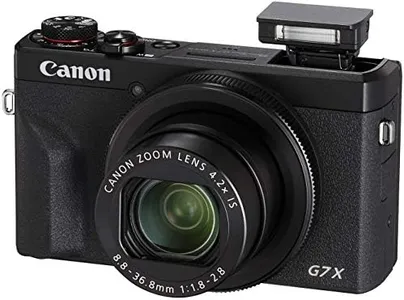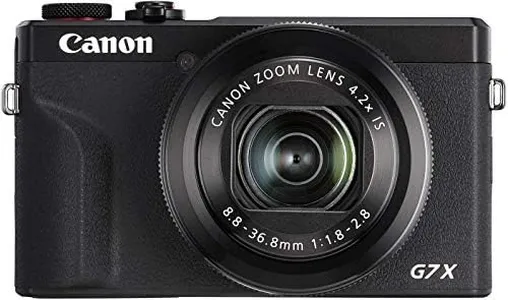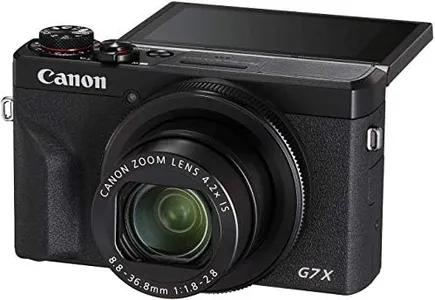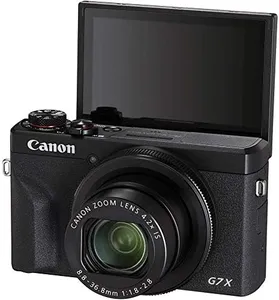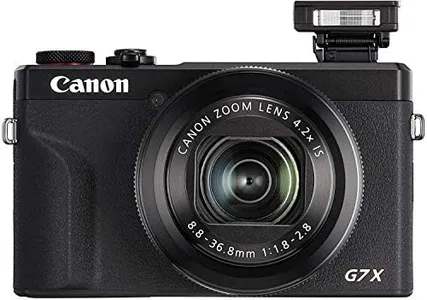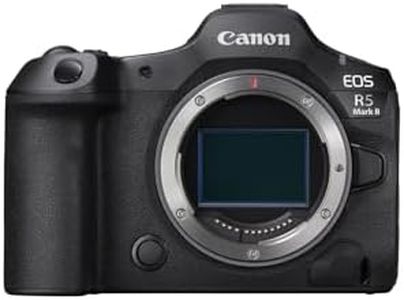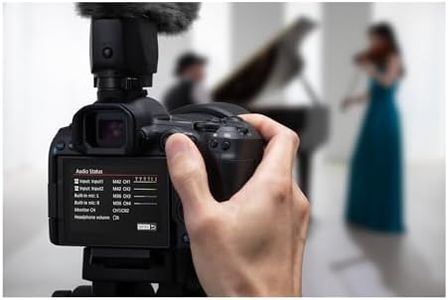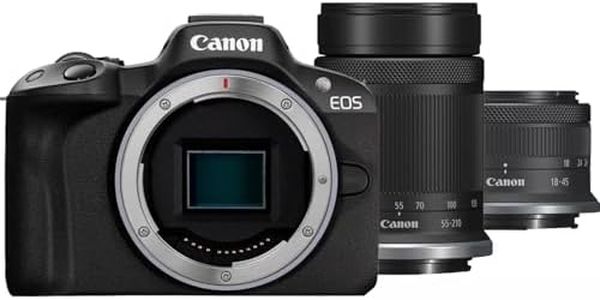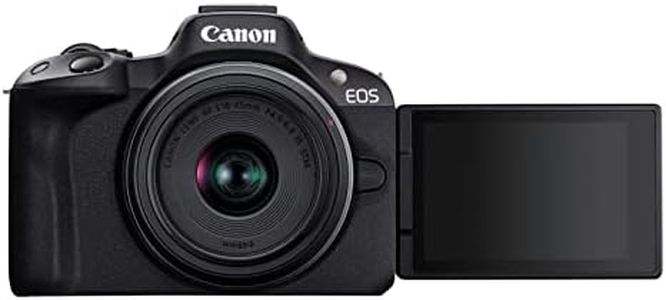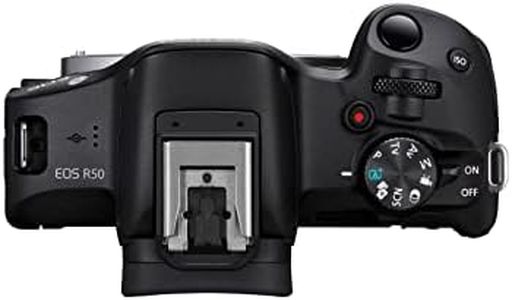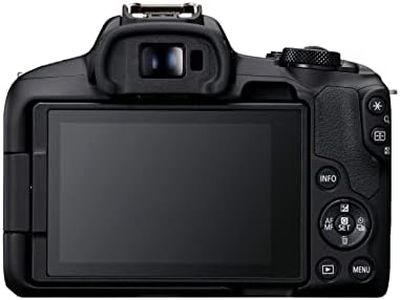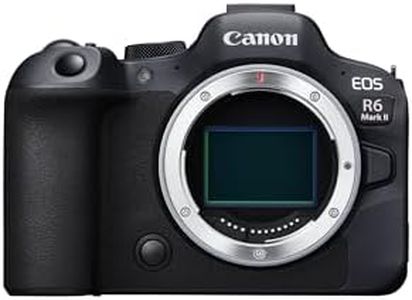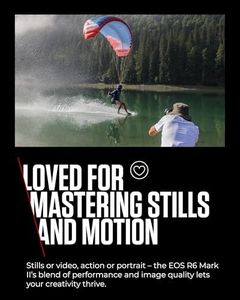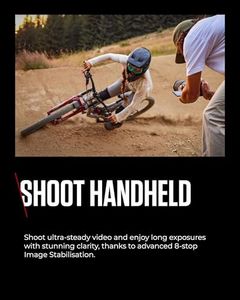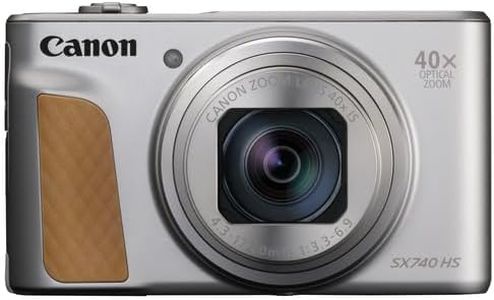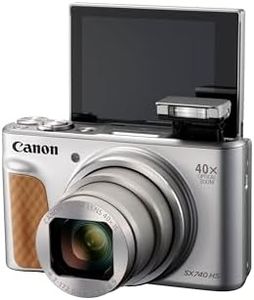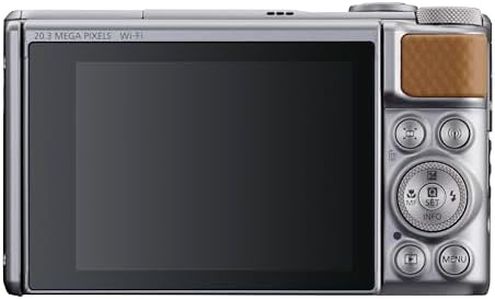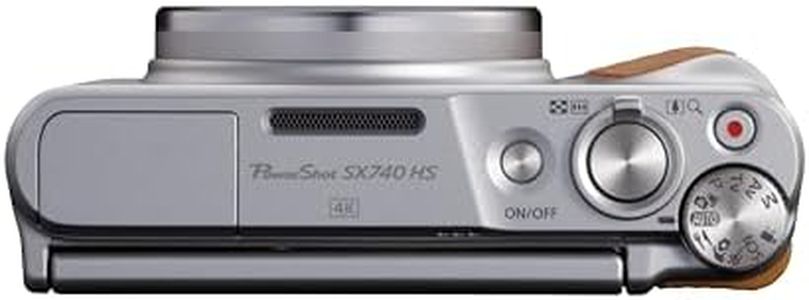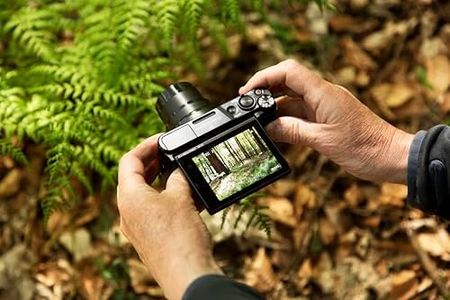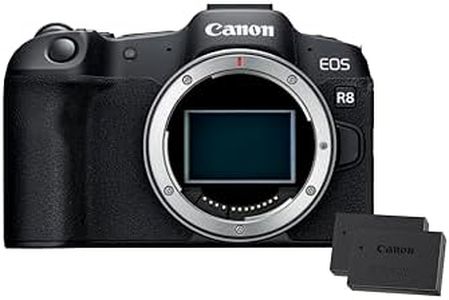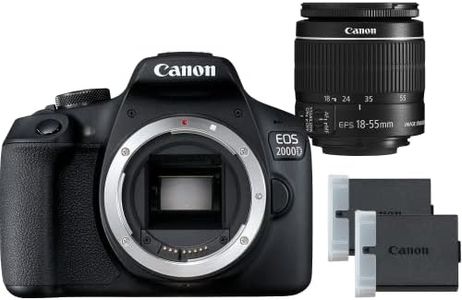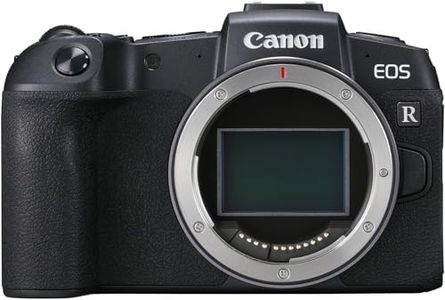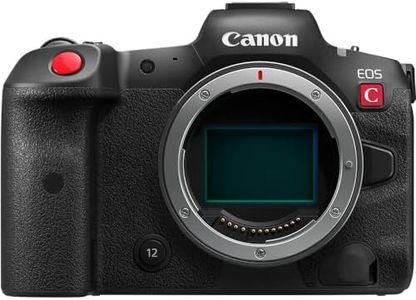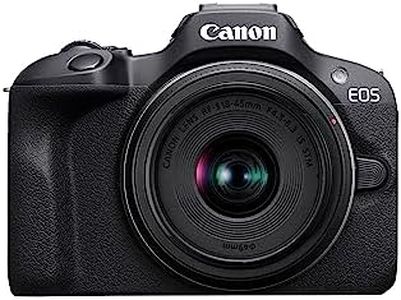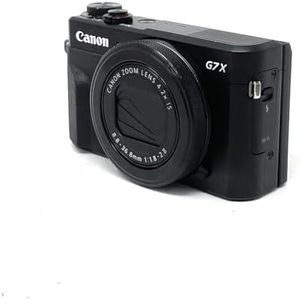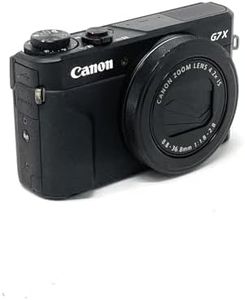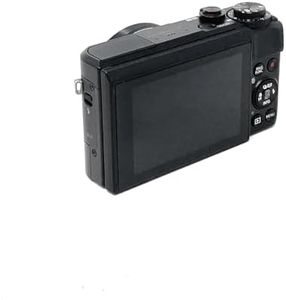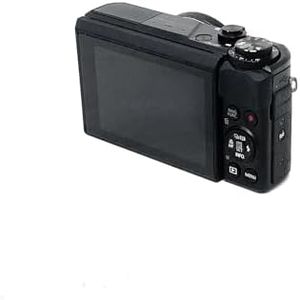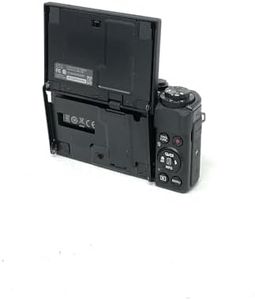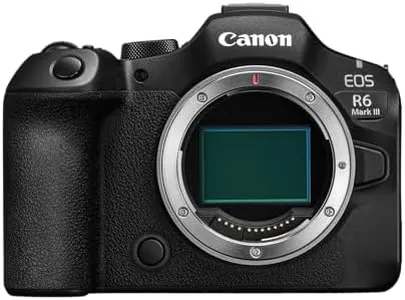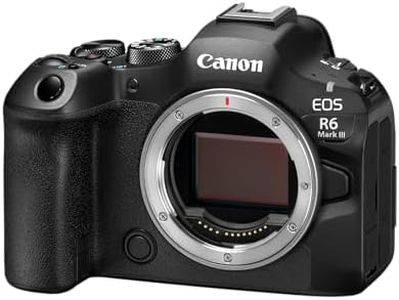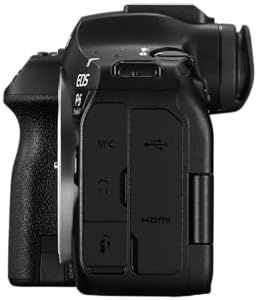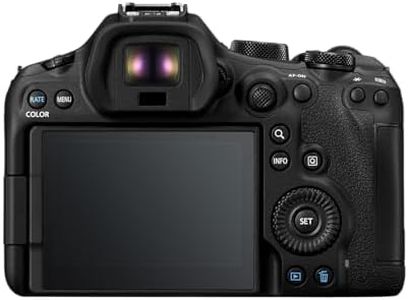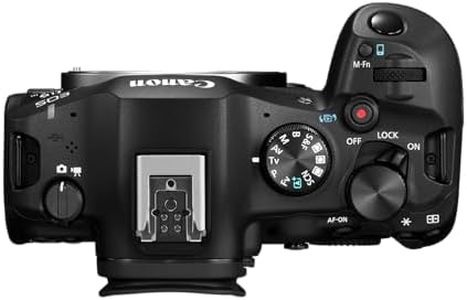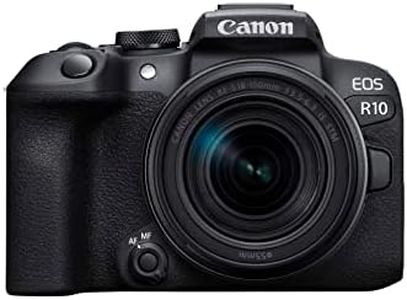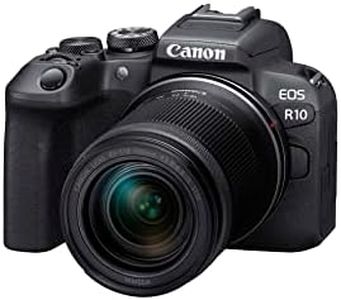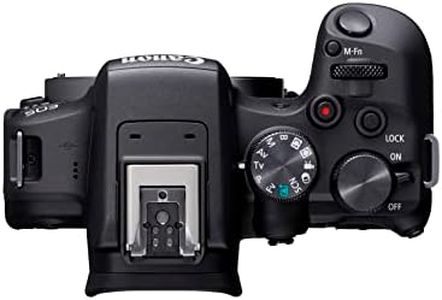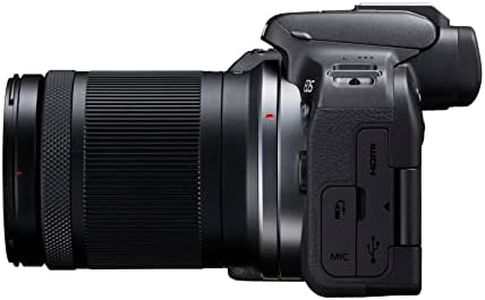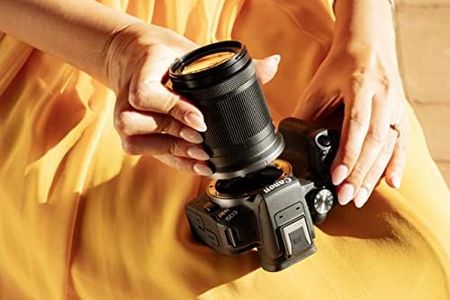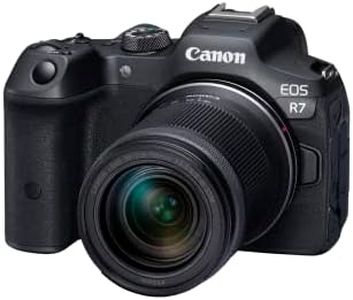We Use CookiesWe use cookies to enhance the security, performance,
functionality and for analytical and promotional activities. By continuing to browse this site you
are agreeing to our privacy policy
10 Best Canon Cameras
From leading brands and best sellers available on the web.By clicking on a link to a third party's website, log data is shared with that third party.
Top 10 Best Canon Cameras 2026 in the UK
#1
Winner
Canon PowerShot Digital Camera [G7 X Mark III] with Wi-Fi & NFC - International Version - Black
Canon PowerShot Digital Camera [G7 X Mark III] with Wi-Fi & NFC - International Version - Black
Sensor Size: 1.0”
Megapixels: 20.1 MP
ISO Range: 50-12800
Autofocus System: 425 points
Video Capabilities: 4K at 30 fps, Full HD
Lens Compatibility: Canon EF
Build Quality and Ergonomics: Compact, lightweight, 372 grams, not water-resistant
Connectivity: Wi-Fi, NFC
Chosen by 1354 this week
Canon EOS R5 Mark II Body
Canon EOS R5 Mark II Body
Sensor Size: Full Frame
Megapixels: 45 MP
ISO Range: 50 to 102400
Autofocus System: Eye control, predictive action priority
Video Capabilities: Capture video and stills simultaneously
Lens Compatibility: Canon RF
Build Quality and Ergonomics: Robust with water resistance
Canon EOS R50 Mirrorless Camera + RF-S 18-45mm F4.5-6.3 IS STM + RF-S 55-210mm F5-7.1 IS STM Lens - 24.2MP, APS-C, 15fps | 4K Oversampled 6K Video | Wi-Fi, Bluetooth | Compact for Travel & Vlogging
Canon EOS R50 Mirrorless Camera + RF-S 18-45mm F4.5-6.3 IS STM + RF-S 55-210mm F5-7.1 IS STM Lens - 24.2MP, APS-C, 15fps | 4K Oversampled 6K Video | Wi-Fi, Bluetooth | Compact for Travel & Vlogging
Sensor Size: APS-C
Megapixels: 24.2 MP
ISO Range: 100-51200
Autofocus System: Dual Pixel CMOS AF II
Video Capabilities: 4K 30p oversampled
Lens Compatibility: Canon RF
Build Quality and Ergonomics: Natural grip, articulating touchscreen
Connectivity: Wi-Fi, Bluetooth
Canon EOS R6 Mark II Full Frame Mirrorless Camera Body Only | 24.2-megapixels, up to 40fps continuous shooting, 4K 60p, up to 8-stops IS and Dual Pixel CMOS Auto Focus II Black
Canon EOS R6 Mark II Full Frame Mirrorless Camera Body Only | 24.2-megapixels, up to 40fps continuous shooting, 4K 60p, up to 8-stops IS and Dual Pixel CMOS Auto Focus II Black
Sensor Size: Full Frame
Megapixels: 24.2 MP
ISO Range: 100-25600
Autofocus System: Dual Pixel CMOS AF II
Video Capabilities: 4K 60p, 6K ProRes RAW
Lens Compatibility: Canon RF
Build Quality and Ergonomics: Sturdy, intuitive controls
Connectivity: Wi-Fi, Bluetooth
Canon EOS R5 Body Camera
Canon EOS R5 Body Camera
Megapixels: 45 MP
ISO Range: 50-51200
Autofocus System: Auto Focus, 153 points, deep learning
Video Capabilities: 8K RAW, 4K up to 120 fps
Lens Compatibility: Compatible with Canon RF, EF, EF-S
Build Quality and Ergonomics: Solid, ergonomic, large viewfinder, touchscreen
Connectivity: Dual card slots
Canon PowerShot G7 X Mark II Digital Camera
Canon PowerShot G7 X Mark II Digital Camera
Megapixels: 20
ISO Range: 100-12800
Autofocus System: 31-point autofocus
Video Capabilities: Full HD 60fps
Lens Compatibility: Canon mount
Build Quality and Ergonomics: Solid, pocket-friendly, 3-inch tilt screen
Connectivity: Wi-Fi, NFC
#10
Buying Guide for the Best Canon Cameras
Choosing the right Canon camera involves understanding your needs and matching them with the camera's specifications. Whether you're a beginner, hobbyist, or professional, Canon offers a range of cameras to suit different levels of expertise and types of photography. Here are some key specifications to consider when selecting a Canon camera, along with explanations to help you make an informed decision.Sensor SizeThe sensor size determines the quality of the images and how the camera performs in low light. Larger sensors, like full-frame sensors, capture more light and detail, making them ideal for professional photography and low-light conditions. APS-C sensors are smaller but still offer good quality and are often found in mid-range cameras, suitable for enthusiasts and hobbyists. For beginners or casual photographers, smaller sensors like those in compact cameras can be sufficient.
MegapixelsMegapixels refer to the resolution of the camera's sensor, indicating how many millions of pixels the camera can capture. Higher megapixels mean more detail, which is important for large prints or cropping images without losing quality. For most users, a camera with 16-24 megapixels is sufficient. Professional photographers who need to print large images or do extensive cropping might prefer cameras with 30+ megapixels.
ISO RangeISO range measures the camera's sensitivity to light. A wider ISO range allows for better performance in various lighting conditions, especially low light. Cameras with higher ISO capabilities can capture clearer images in dim environments without needing a flash. For general use, an ISO range of 100-3200 is usually adequate. For low-light photography or fast-moving subjects, look for cameras with ISO ranges extending to 6400 or higher.
Autofocus SystemThe autofocus system determines how quickly and accurately the camera can focus on a subject. More autofocus points and advanced tracking features are beneficial for capturing fast-moving subjects, such as in sports or wildlife photography. Beginners and casual users can manage with basic autofocus systems, while enthusiasts and professionals might prefer more sophisticated systems with numerous focus points and advanced tracking capabilities.
Video CapabilitiesIf you plan to shoot videos, consider the camera's video capabilities. Look at the resolution (e.g., 1080p, 4K) and frame rates (e.g., 30fps, 60fps). Higher resolutions and frame rates provide better video quality and smoother motion. For casual video recording, 1080p at 30fps is usually sufficient. For more professional video work, look for 4K resolution and higher frame rates.
Lens CompatibilityCanon cameras come with different lens mounts, such as EF, EF-S, and RF. Ensure the camera you choose is compatible with the lenses you plan to use. Full-frame cameras typically use EF or RF lenses, while APS-C cameras use EF-S lenses. Consider your future needs and whether you might want to expand your lens collection.
Build Quality and ErgonomicsThe build quality and ergonomics of a camera affect its durability and how comfortable it is to use. Professional cameras often have weather sealing and robust construction to withstand harsh conditions. For casual use, lighter and more compact cameras might be preferable. Hold the camera to see how it feels in your hands and consider the layout of the controls.
ConnectivityModern cameras offer various connectivity options like Wi-Fi, Bluetooth, and NFC for easy sharing and remote control. These features can be very convenient for transferring photos to your smartphone or controlling the camera remotely. If you value instant sharing and remote operation, look for cameras with these connectivity options.
